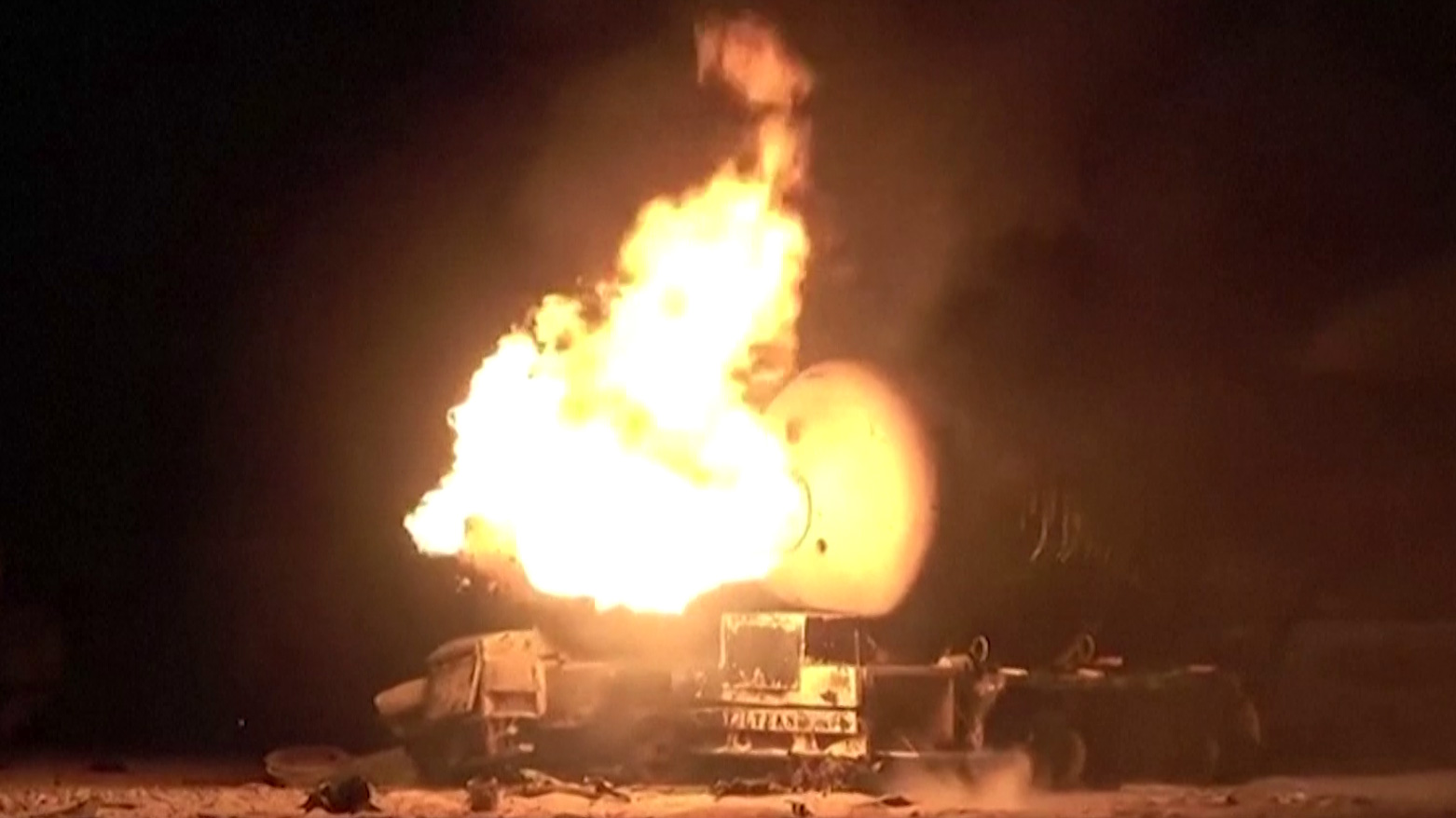US Strikes Houthi Oil Port; Sanctions Yemeni Bank that Supports Houthis
“The objective of these strikes was to degrade the economic source of power of the Houthis, who continue to exploit and bring great pain upon their fellow countrymen,” the US said.

WASHINGTON DC, United States (Kurdistan 24) - The U.S continues the military and economic aspects of its campaign against the Houthis, which the Trump administration began in earnest on March 15.
On Thursday, U.S. warplanes struck a Houthi-controlled port on the Red Sea, while the Treasury and State Departments announced sanctions against a Yemeni bank headquartered in Houthi-controlled territory that helps fund the terrorist group.
In addition, State Department Spokesperson Tammy Bruce confirmed a report in the Financial Times that a Chinese satellite firm was aiding the Houthis in targeting U.S. warships and commercial vessels in the Red Sea and Gulf of Aden.
Strike on Houthi Fuel Port
CENTCOM announced its attack on the Houthi-controlled fuel port of Ras Isa, north of Hodeidah, in a statement saying, “Today, US forces took action to eliminate this source of fuel for the Iran-backed Houthi terrorists and deprive them of illegal revenue that has funded Houthi efforts to terrorize the entire region for over 10 years.”
“The objective of these strikes was to degrade the economic source of power of the Houthis, who continue to exploit and bring great pain upon their fellow countrymen,” it continued, adding, ”This strike was not intended to harm the people of Yemen, who rightly want to throw off the yoke of Houthi subjugation and live peacefully.”
Yemen has suffered from civil war for the past eleven years—one more country in which the “Arab spring” did not work out as the George W. Bush administration and the so-called “neocons” expected. Overthrowing bad regimes does not necessarily produce good regimes.
The relationship between Iran and the Houthis goes back to the 1990s. About 35% of the Yemeni population follows a Shi’a form of Islam (Zaydi), while the other 65% is Sunni, according to State Department estimates.
The Houthis are Zaydis, and Tehran started to develop ties with them, as their leadership began studying, some three decades ago, at an Islamic seminary in Qom.
The military relationship between Iran and the Houthis began in 2014, after the overthrow of the previous government. The Houthis captured the capital of Sana’a, and they have dominated in the north.
But they have never controlled the whole country. Indeed, there is an internationally-recognized government in Aden, and it dominates in the south.
Following Thursday’s strikes on Ras Isa, Houthi media said that 38 people had been killed and 80 others wounded. “The death toll, if confirmed,” would make the strike “one of the deadliest” in the current U.S. campaign, the British newspaper, The Guardian, wrote.
Earlier this month, Gen. Kenneth McKenzie (US Marine Corps, Ret.), who headed CENTCOM from 2019 to 2022, published an op-ed in The New York Times. McKenzie stressed the importance of the U.S. military campaign against the Houthis.
“The Biden administration mostly chose to ignore the growing threat to world commerce posed by the Houthis,” McKenzie wrote. “Its responses were telegraphed and thoroughly watered down to avoid any possibility of escalation by Iran and, concomitantly, any lasting damage to the Houthis. As a result, the impact on the group was ephemeral at best.”
The Trump administration, he argued, was doing the opposite, describing its actions as “a necessary military campaign” and a potential turning point for the entire region.
Sanctions on International Bank of Yemen
Also on Thursday, the U.S. Treasury and State Departments announced sanctions for a Yemeni bank that is supporting the Houthis and providing a means for it to access the International financial system.
As the Treasury Department explained, it was imposing sanctions on the International Bank of Yemen, along with three senior bank officials, for the bank’s support of the Houthis, whom it described as “part of the Iran threat network.”
It was the second such action, the Treasury announcement explained, as the Yemen Kuwait Bank for Trade and Development was sanctioned in January.
Notably, the U.S. is not sanctioning Yemeni banks that do not support the Houthis. As Treasury explained, the Central Bank of Yemen, based in Aden, is under the control of the internationally recognized government, and not the Houthis.
That government “has worked with banks in Houthi-controlled territory to move their operational headquarters to Aden,” Treasury stated, “far from the intimidation and coercive influence of the Houthis.”
Nonetheless, it said, the International Bank of Yemen “continues to refuse to move its headquarters from Houthi-controlled territory.” Hence, the sanctions.
Chinese Satellite Company Supports Houthis
Addressing reporters at a press briefing, State Department Spokesperson, Tammy Bruce, underscored the importance of a Financial Times report that described the support provided the Houthis by a Chinese satellite company.
She attached no penalty to that support in her remarks on Thursday, but she denounced it in strong terms, and, clearly, penalties could follow.
“We can confirm the reporting that Chang Guang Satellite Technology Co., Ltd. is directly supporting Iran-backed Houthi terrorist attacks on U.S. interests,” Bruce said in opening remarks.
“Their actions and Beijing’s support of the company, even after our private engagements with them, is yet another example of China’s empty claims to support peace,” she continued, and concluded, “The United States will not tolerate anyone providing support to foreign terrorist organizations, such as the Houthis.”
